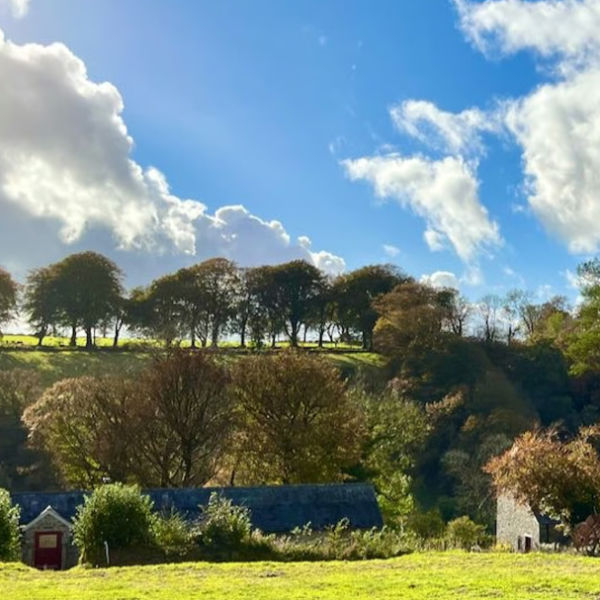The Grand Hotel, Birmingham.
The West Midlands Destination Development Partnership (DDP) has been working with Green Tourism to support businesses across the West Midlands and drive up levels of Sustainability Certification. This is one of a series of mini case studies revealing how the Green Tourism certification process is helping businesses to operate more sustainably and market themselves to the growing sustainable tourism market.
A hotel at the heart of the industrial revolution is now embracing the green revolution.
Dating back to 1879, when Birmingham was the industrial epicentre of the world, the Grand Hotel certainly lives up to its name. A grade II listed building, which occupies the best part of an entire city block, The Grand Hotel is one of the largest Victorian structures in Birmingham. It closed its doors in 2002 when the palazzo façade became unsafe and, for many years, the Hotel faced an uncertain future and possible demolition. That future was secured when plans for a major restoration project were approved to return the Hotel to its full, five-star, splendour. It reopened its doors in 2021 built back better and ready to provide future guests with sustainable luxury accommodation.
Giving a Victorian building a 21st Century outlook.
The refurbishment of the hotel enabled the developers to incorporate the latest energy-saving and resource efficiency technologies to bring the building’s performance up to modern sustainability levels. The new Hotel now comprises 185 bedrooms, new penthouse suites a sunken rooftop garden terrace, two new bars, a restaurant and a gym. The hotel has been reconfigured to cater for Birmingham’s burgeoning market for business events and conferences with a variety of meeting and event spaces including the legendary grand ballroom which can accommodate up to 250 people. At weekends, it shifts to the consumer market for city breaks
Recognising the growing importance sustainability to corporate clients, the Hotel’s management were determined to achieve the most effective and credible sustainability certification they could find. After much research they decided that Green Tourism were the best organisation to help them achieve this. Their parent group, De Vere Hotels, already worked with Green Tourism and members of the team had previous, positive experience of Green Tourism. They also felt that Green Tourism’s portfolio of members and international credentials reflected the quality and values they were looking to achieve, and the organisation’s Green Meetings certification scheme would allow them to target business customers on two fronts.
Quick Wins
Modern building standards
The recent refurbishment of the hotel meant that it already featured energy and water-saving innovations to meet the latest standards of building regulations. This gave the Hotel a healthy head-start on a number of levels right from day one.
Directing the traffic
The Hotel’s city centre location, at the heart of the UK transport network, is a sustainability gift – with excellent public transport connections. This enables the Hotel to direct visitors to the most sustainable possible modes of transport and provide safe walking routes to attractions throughout the city. The hotel does not have a car park itself but provides clear directions to nearby parking with EV charging facilities.
Complementing city centre communities
Like all major post-industrial cities, central Birmingham has its fair share of challenges and The Grand Hotel’s location puts it in a perfect position to help address these. Green Tourism’s advice helped the team to understand the importance of community support as part of a comprehensive sustainability strategy. Determined to be a pillar of the local community, the Hotel supports projects in the local Children’s hospital, a local community garden and the Birmingham Central Food Bank as well as raising funds for national charities such as Macmillan Cancer Support.
Working harder on waste
One of the biggest challenges the team faced was waste. Because they share the block with other businesses, waste is managed by the building’s facilities management company and they have to share facilities with other tenants and they have encountered issues with contamination of waste streams, especially food waste. They are working with the facilities managers to address these. They already have their own sustainable provision for waste cooking oil arising in their kitchens and are considering their own separate food waste collection.
Green from the top down
Buy-in to sustainability across the workforce was patchy initially and a key learning has been to engage with the upper echelons of the management team so that the enthusiasts recruited to the Green Team had the full support of all senior managers. This ensured that good ideas coming from the team, such as deploying reusable coasters and dispensing with table cloths to avoid having anything disposable on tables, are fully embraced. This kind of small, but highly visible, improvement are increasingly appreciated by sustainability-aware business customers and contribute to the Hotel’s sustainability story.
Taking biodiversity to the highest level
Building biodiversity into a city centre location is always going to be a challenge and few Hotels are more central to a city than the Grand Hotel. However, the new roof terrace gave the team the chance to rise to that challenge – planting lavender to attract pollinators and introducing bug hotels to accommodate the most sustainable airborne guests.
In Conclusion
Working with Green Tourism, helped the team understand those areas that they could make a difference and the significance of actions that had not been front of mind. The Green Tourism portal and Knowledge Hub helped reveal the impact of many small adjustments and improvements. Often these were relatively simple to achieve and while the initial rating looked like it would result in a Bronze Award, Green Tourism’s support team were able to point out a number of actions and initiatives that helped the Grand Hotel to secure a Silver Award at their first assessment. The team at the Grand Hotel are keen to further improve their performance and achieve Gold at their next assessment and Green Tourism have been able to direct them to the key improvement areas they need to target.









